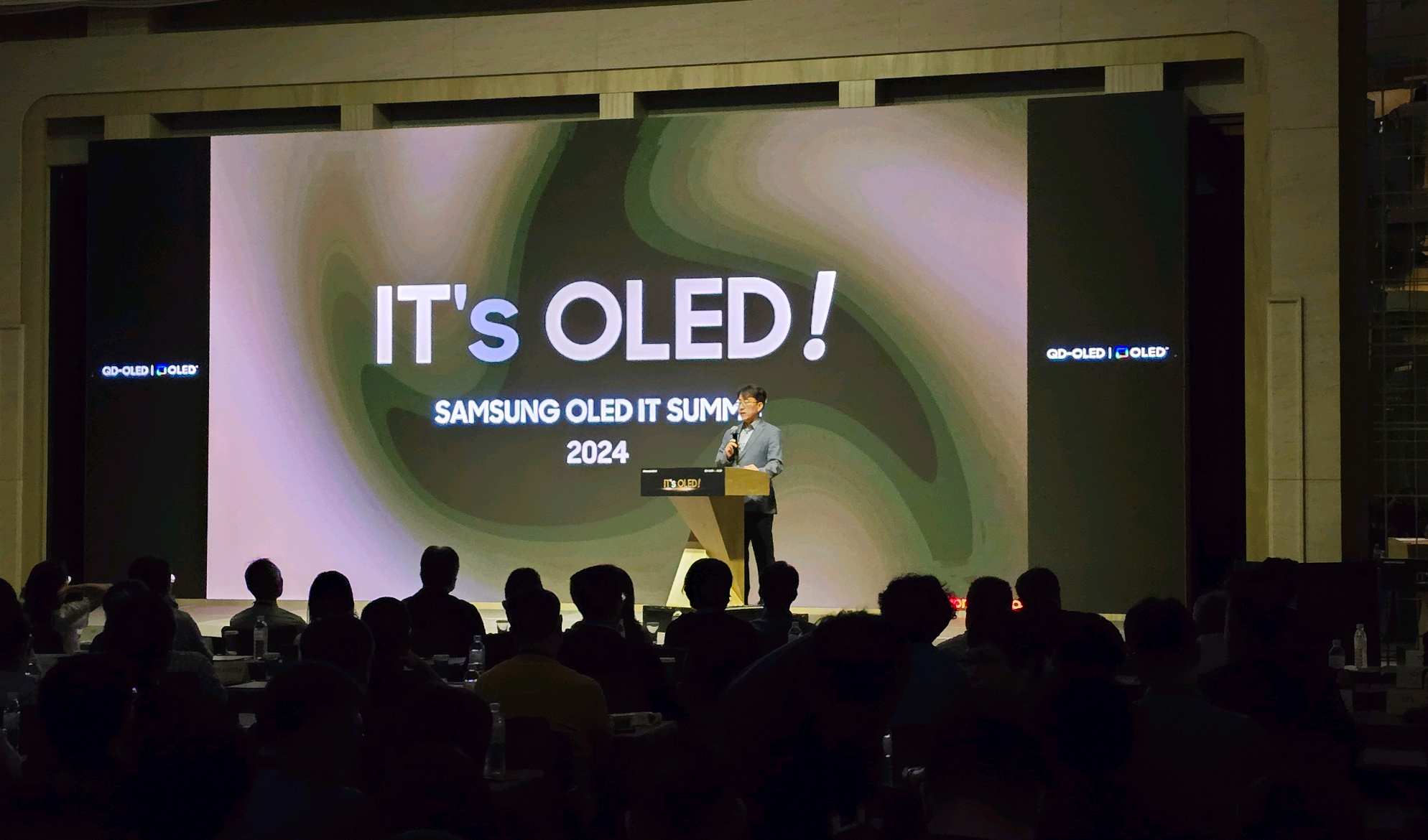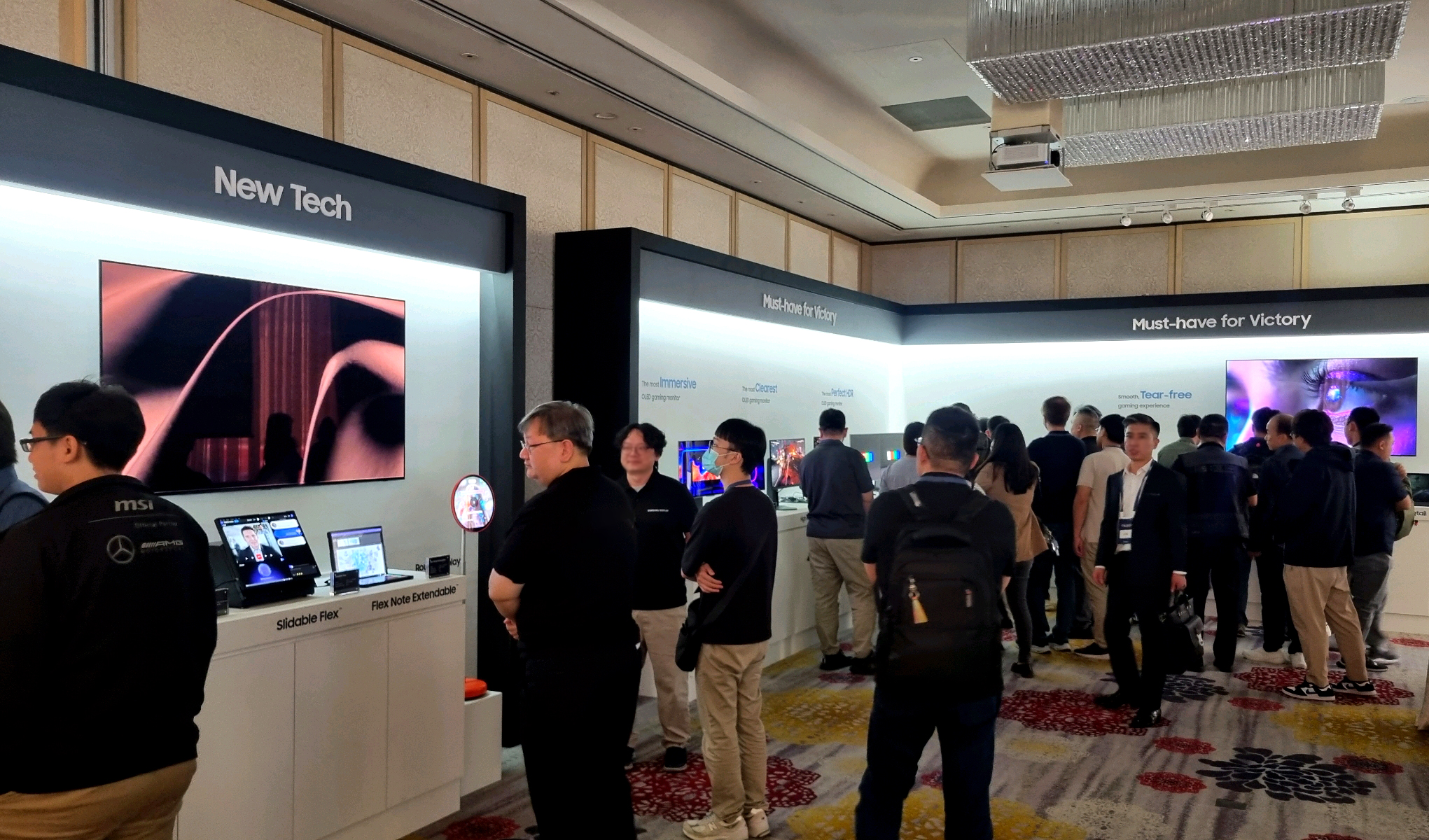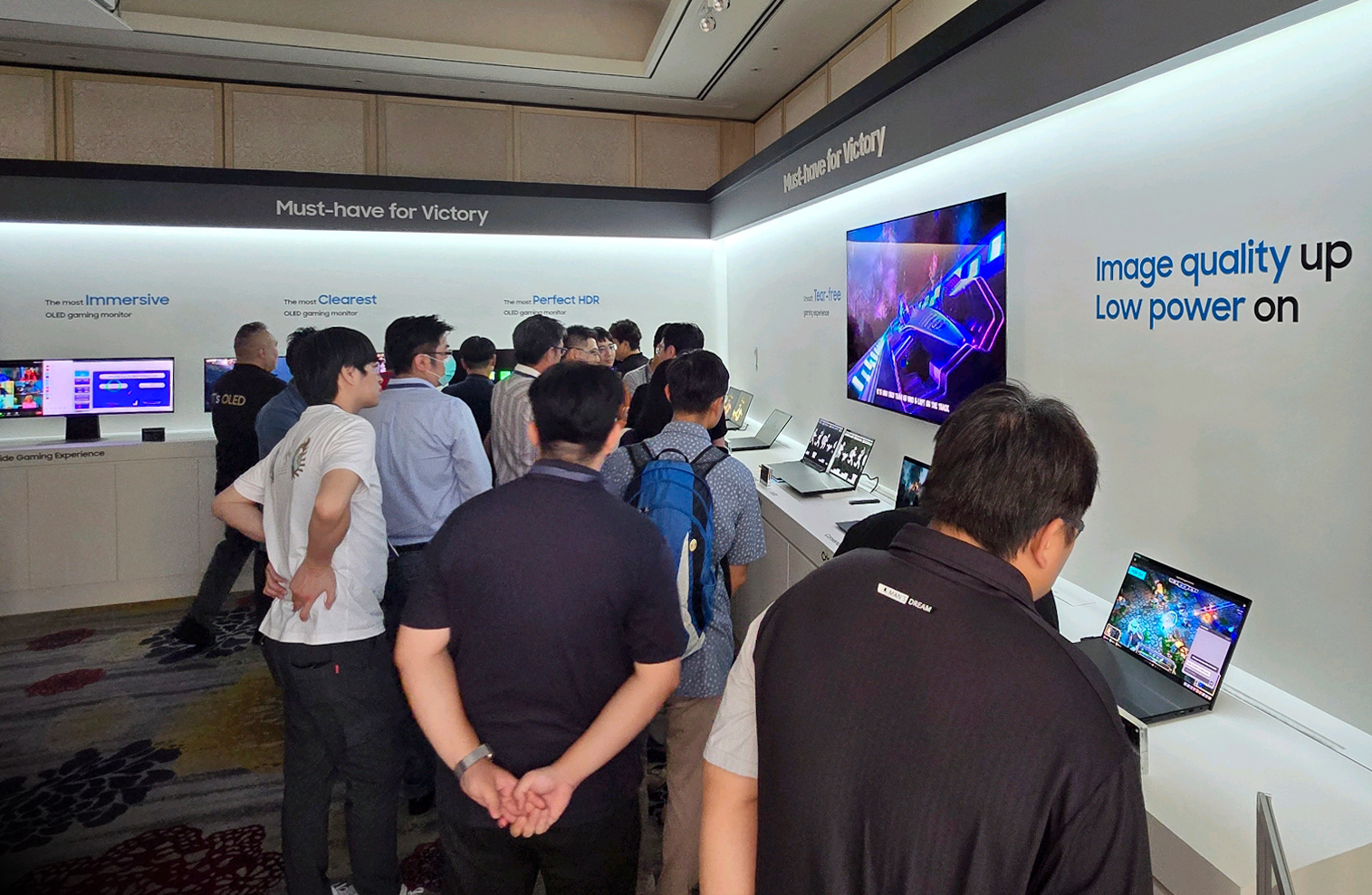□ Samsung Display champions OLED tech for PCs in the AI era at ‘Samsung OLED IT Summit 2024,’ highlighting its superior color reproduction and contrast expression
□ Under the ‘IT’s OLED’ theme, Samsung Display showcased the unique strengths that the company’s OLEDs offer for laptops and monitors, such as low power consumption and color accuracy
□ The company also revealed innovative AI-related display technologies, including Flex Magic Pixel™ and Eco² OLED™, for enhanced security and sustainability
SEOUL/TAIPEI October 15, 2024 – In a presentation to global IT companies today, Samsung Display emphasized the superior performance of its OLED technology for PCs in Taipei, an emerging infrastructure hub in the artificial intelligence (AI) era. This emphasis comes amidst the rapid growth of OLED in the IT device market, including monitors and laptops, the company aims to strengthen its technological leadership by fostering close collaboration with key clients.
The company held the ‘Samsung OLED IT Summit 2024’ (formerly known as ‘Samsung OLED Forum’[1]) at the Grand Mayfull Hotel in Taipei. This major event attracted over 300 officials from more than 20 companies, including global IT giants such as Acer, AOC, ASUS, Dell Technologies, GIGABYTE, HP, MSI, and Philips as well as tech leaders like Intel and Qualcomm Technologies Inc., and major ODM companies like Inventec. This initiative marks an important step in Samsung Display’s efforts to emphasize OLED’s unique advantages in the evolving AI landscape.
Under the ‘IT’s OLED’ theme, Samsung Display showcased the unique strengths that only Samsung Display’s OLED can offer the IT market (laptops and monitors) which has gained momentum in the era of on-device AI. The superior color reproduction and contrast expression were particularly noted. In the AI era, given that anyone can become a content creator, IT companies anticipate an increase in consumer interest in picture quality.
According to the market research firm Omdia, the laptop and monitor display market is predicted to grow at an average annual rate of 4%, elevating its value from roughly $19.6 billion in 2023 to $26.6 billion by 2031. Concurrently, the market share for OLED is projected to see a significant rise from 5% to 42%. As it stands in 2023, Samsung Display holds a substantial 94% share of the laptop and monitor OLED market, based on shipment volume.
Samsung Display’s OLED boasts superior color reproduction as the RGB light emitted by organic materials reaches the user’s eyes without passing through a color filter. The company’s QD-OLED also differs from existing large OLEDs in that it internalizes quantum dots to complete a pixel structure composed of RGB tricolor alone, allowing it to accurately express colors without interference from surrounding colors.
In fact, Samsung Display became the first in the display industry this year to obtain Pantone Validation for monitor and laptop panels. Pantone is a global leader in the color business field, supplying the highly trusted Pantone Matching System (PMS) in various fields.
“In the AI era where anyone can create content, the boundaries between content consumers and creators are blurred,” said Thomas Dlugos, OEM Display Sales Director of X-Rite PANTONE, during his presentation on ‘The Importance of Color Fidelity in AI Content’. “The superior color reproduction of Samsung Display’s OLED is more than enough to satisfy the elevated standards of both consumers and creators.”
Samsung Display’s low power consumption technology was also highlighted as a solution to concerns about the increasing power consumption of AI technology. This year, Samsung Display introduced full oxide backplane technology. New products equipped with this technology were the first IT panel to support a minimum 1Hz variable refresh rate. Normally, a display driven at a low refresh rate experiences a ‘flicker’ problem, where the screen blinks and vibrates slightly. However, Samsung Display has dramatically reduced current leakage through oxide TFT (Thin Film Transistor) technology, thus solving this problem and providing a solution to reduce power consumption by applying a low refresh rate.
Samsung Display emphasized that AI further enhances the gaming experience. AI can increase the clarity of the basic play screen, improve visibility in dark environments by increasing contrast, and apply a power-saving mode that reduces screen brightness when the character’s activity is low. The company offers optimized gaming monitor solutions for various types of gameplay, with 49-inch ultra-wide products, as well as 27-inch and 31.5-inch high refresh rate/high-resolution products.
“Samsung Display’s OLED is the display that game developers have been waiting for. It is especially effective in helping users immerse themselves in gameplay,” said Hyungjun Kim, the producer and director of ‘inZOI’, the life simulation game in development at KRAFTON, during his presentation ‘Enjoy OLED with inZOI’.
Samsung Display also attracted the attention of IT companies by unveiling many new AI-related display technologies that will be implemented in products soon. Flex Magic Pixel™ is a technology that adjusts the viewing angle so that the screen is not easily visible to the person next to it. It can sync with AI technology to adjust the level of security depending on the app being used, thereby enhancing consumer convenience.
There were also many inquiries about new products that are the first to incorporate Eco² OLED™ technology in large-scale IT panels. Eco² OLED™ is the industry’s first technology to incorporate a polarizing plate function with on-cell film (OCF) technology and is already being applied to foldable smartphones. Normally, when light passes through a polarizing plate, brightness decreases by about 50%. However, this technology can increase light transmittance, allowing the same brightness to be achieved with up to 37% less power compared to existing OLEDs. It is also evaluated as an environmentally friendly technology as it does not use a polarizing film made of plastic material.
“Samsung Display’s OLED is the best solution that can satisfy important performance in the choice of on-device AI, such as low power consumption, vivid picture quality, and high portability design,” said Chung Yi, Head of Mobile Display Business at Samsung Display. “We will continue to show various OLED innovations so that our customers can showcase the best products in line with the AI PC era.”
[1] Samsung OLED Forum: Samsung Display has been hosting an event to introduce its technology by inviting global IT customers under the name ‘Samsung OLED Forum’ every year from 2014 until 2019. Due to the COVID-19 situation, the event was suspended from 2020 until last year, but it was resumed this year under the name ‘Samsung OLED IT Summit’.




